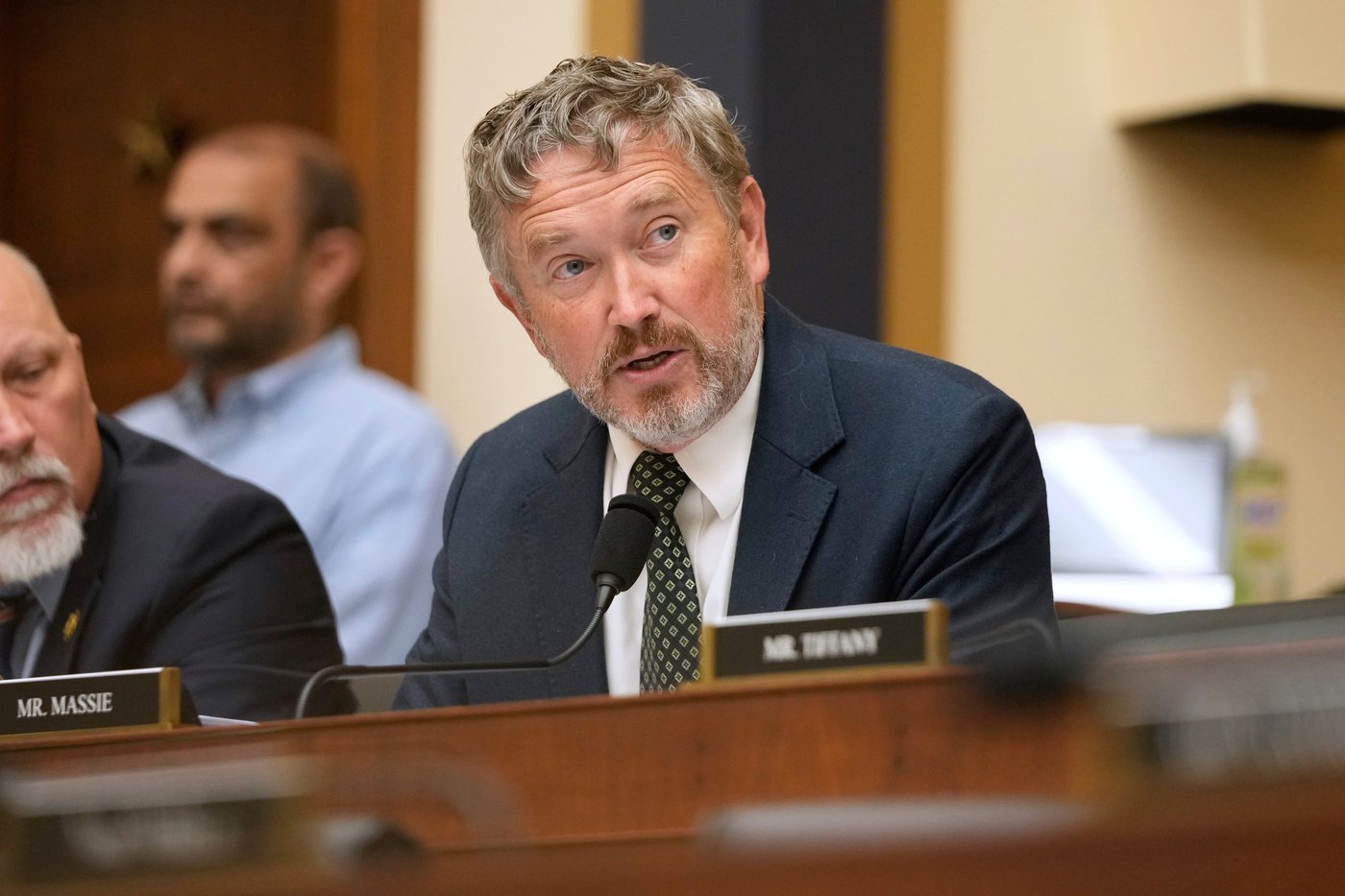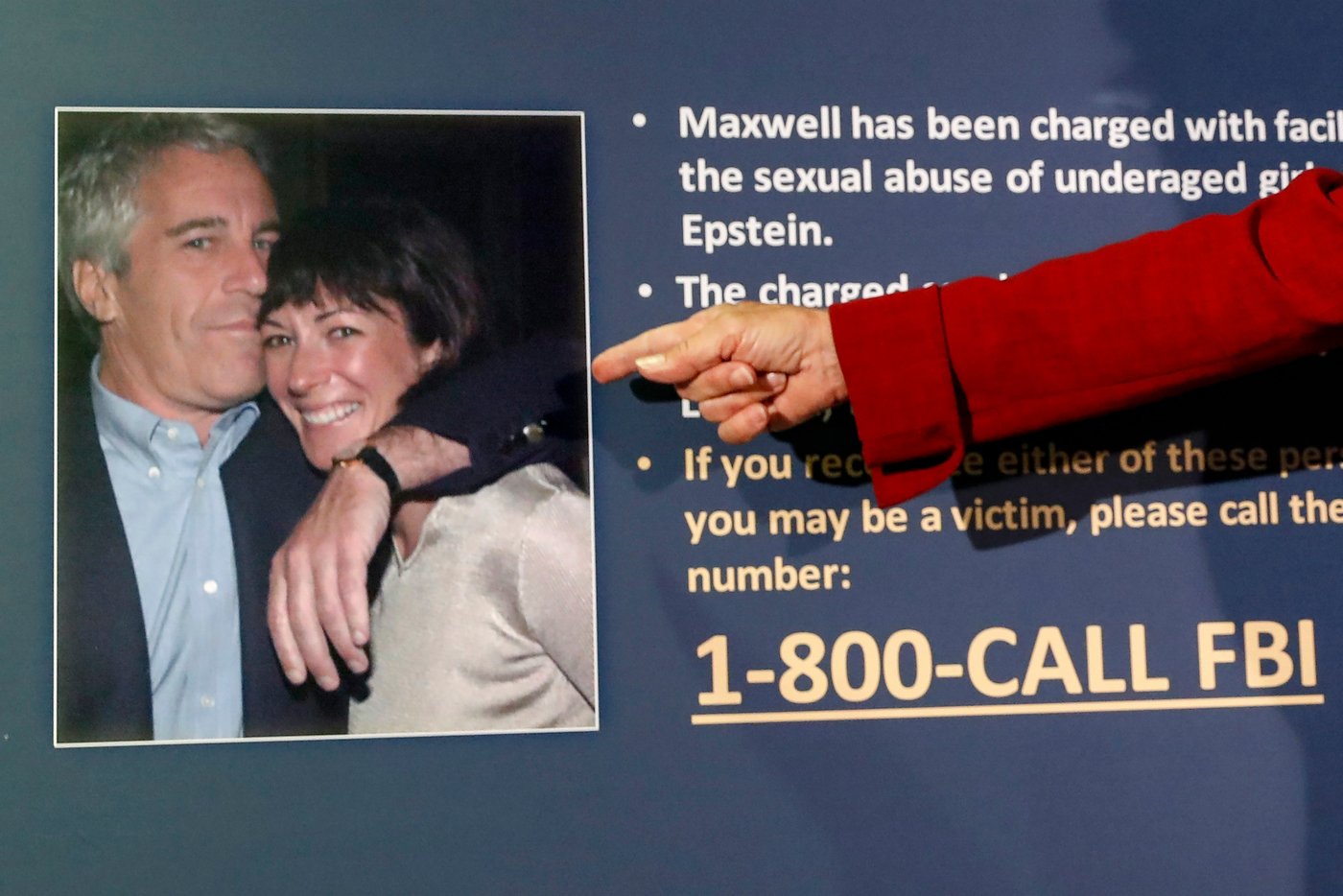Elevate your local knowledge
Sign up for the iNFOnews newsletter today!

WASHINGTON (AP) — The House is heading toward a vote Tuesday on a bill to force the Justice Department to release the case files it has collected on the late financier Jeffrey Epstein, pushing past a monthslong effort by President Donald Trump and Republican leaders to stymie the effort.
The push for more disclosure in the years-old sex trafficking investigation into Epstein has come roaring back since the House returned to Washington after a nearly two-month absence during the government shutdown. As lawmakers returned last week, they were greeted by new details from a tranche of Epstein’s emails, including claims that Trump had “spent hours” at Epstein’s house with a sex trafficking victim and that he “knew about the girls.”
The new revelations and the coming vote showed one of the rare instances where Trump has not been able to exhibit almost total control over his party. Bowing to the growing momentum behind the bill, Trump indicated Monday he would sign the bill if it passes both chambers of Congress.
The sex trafficking case into Epstein has only grown in political influence since Epstein killed himself in a Manhattan jail while awaiting trial in 2019. He faced charges that he sexually abused and trafficked underage girls, and since then many more have said they were abused by the well-connected financier.
Now, many lawmakers say that the Justice Department also needs to release its case files on Epstein, arguing that it could show that other people were aware of or complicit in Epstein’s sexual abuse. House Democrats, joined by a few key Republicans, have been able to force a vote on the bill to do that by using a rarely successful measure called a discharge petition.
As it became apparent that the bill will pass the House, most likely with significant support from Republican lawmakers, Trump and House Speaker Mike Johnson changed their approach from outright opposition to declarations of indifference.
“Here’s what I want: We have nothing to do with Epstein. The Democrats do,” Trump told reporters, adding that he believed the issue was distracting from his accomplishments.
Why is the House about to vote?
Reps. Ro Khanna, D-Calif., and Thomas Massie, R-Ky., introduced a petition in July to force a vote on their bill, the Epstein Files Transparency Act.
The effort was backed by all House Democrats and four Republicans: Massie and Reps. Lauren Boebert of Colorado, Marjorie Taylor Greene of Georgia and Nancy Mace of South Carolina.
Minutes after Democrat Adelita Grijalva of Arizona was sworn into office Wednesday, she signed her name to the Epstein petition, pushing it to the magic number of 218 — a majority in the 435-member House.
Johnson said following Grijalva’s swearing-in that he would expedite the petition process to bring a vote on the bill to the House floor this week.
The speaker has pushed back on claims that he has obstructed the Epstein legislation to protect Trump or others. He told reporters last week that the Republican majority took issue with the phrasing of the measure, which he claimed did not adequately protect victims.
Johnson has also pointed repeatedly to a concurrent investigation into Epstein’s sexual abuse that is being conducted by the House Oversight and Government Reform Committee. Republicans who control the committee have also focused on Epstein’s connections to Democrats, including former President Bill Clinton.
It was the oversight panel that released Epstein’s emails, part of 20,000 pages of documents that it obtained from Epstein’s estate.
The committee has also subpoenaed the Justice Department for its case files on Epstein, but Democrats on the committee say the response has been insufficient.
What does the bill do?
The bill would force the Justice Department to release all files and communications related to Epstein, as well as any information about the investigation into his death in federal prison. Information about Epstein’s victims or continuing federal investigations would be allowed to be redacted, per the bill.
The department, however, would not be allowed to redact information due to “embarrassment, reputational harm, or political sensitivity, including to any government official, public figure, or foreign dignitary.”
Several survivors of Epstein’s abuse, joined by lawmakers, also plan to speak outside the Capitol on Tuesday morning.
Is it going to pass?
The bill will almost certainly pass the House, but its future in the Senate is a different story.
It already has support from a majority of the House, and more Republicans are expected to vote for it as they respond to demands from their voters.
The tougher test will come in the Senate, where Republicans hold a 53–47 majority.
Asked in September whether the Senate would take up the Epstein bill if it passed the House, Senate Majority Leader John Thune, R-S.D., said, “I can’t comment on that at this point.”
Thune added that the Justice Department “has already released tons of files related to this matter.”
“I trust them in terms of having the confidence that they’ll get as much information out there as possible in a way that protects the rights of the victims,” Thune said.
Trump says he won’t stop it
Trump said Tuesday that he would sign the bill if it passes both chambers of Congress, though he added, “Let the Senate look at it.”
It was a remarkable reversal from the president after he had lobbied two Republicans last week to try to stop the House discharge petition.
Trump claims that Epstein had more ties with Democrats and said that he didn’t want the Epstein files to “detract from the great success of the Republican Party.”
Still, Massie has suggested Trump could avoid the entire ordeal by ordering the release of all the Epstein files held by the federal government.
“There’s still time for him to be the hero,” Massie said of Trump.

Want to share your thoughts, add context, or connect with others in your community?
You must be logged in to post a comment.